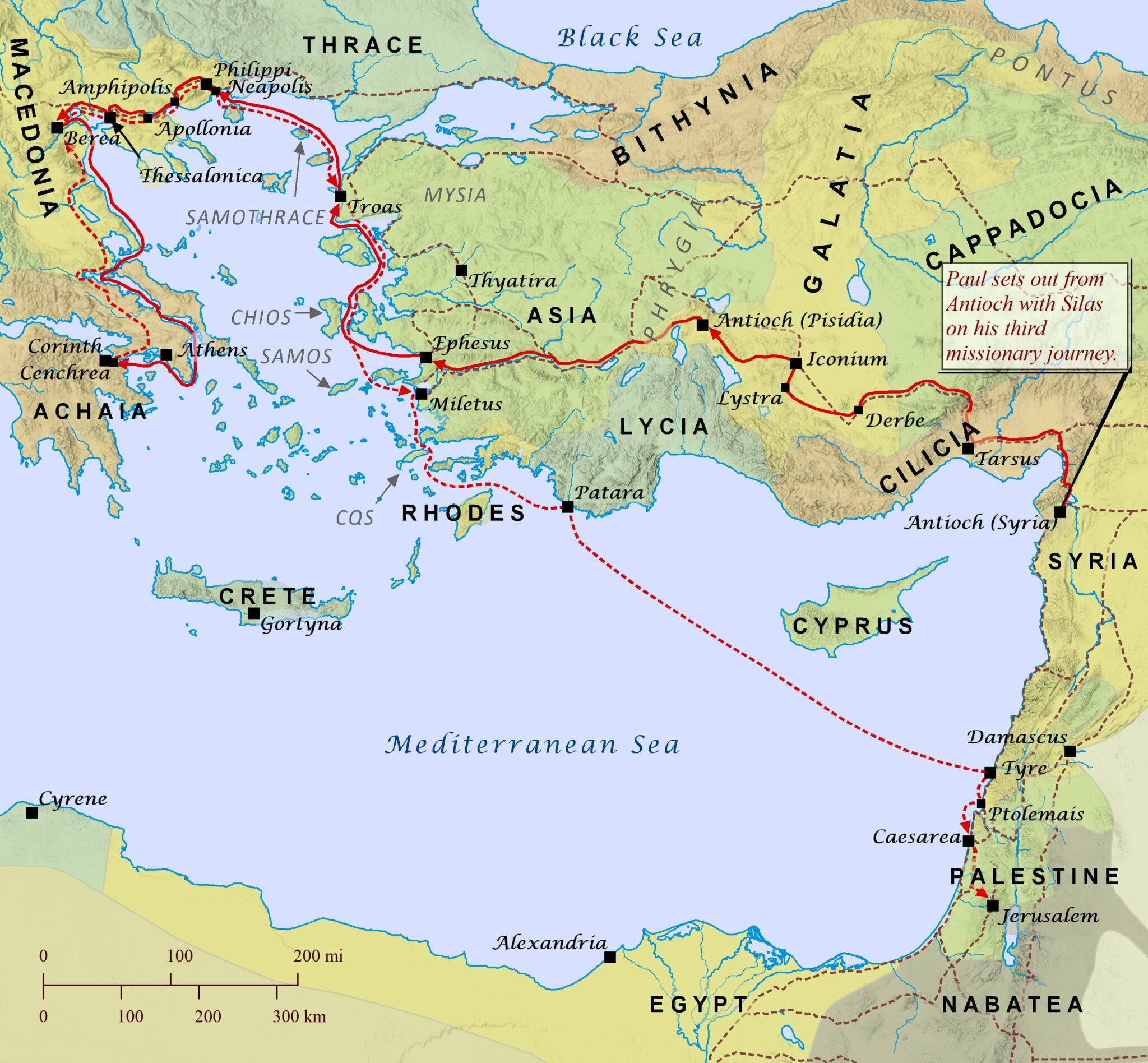Paul emphasizes the reality that we have a new nature and can walk in it—we have the power to choose to live the resurrection life of Christ. We should have a mindset of being free from sin (dead to sin) and living for God (alive to God in Christ).
Christ’s sacrifice has given us as believers the ability to reject our sin nature and walk in fellowship with Jesus in the newness of life (v 4). This does not mean Christians live without sin but rather because we died with Christ, we now have the power and opportunity to live righteously apart from sin: Now if we have died with Christ, we believe that we shall also live with Him, knowing that Christ, having been raised from the dead, is never to die again; death no longer is master over Him. (vv 8–9).
It is important to point out that when Paul says that we believe that we shall also live with Him, he is not simply talking about going to be with Jesus when our earthly body dies. Paul is writing about how to live in the present, how to live by faith, righteously—just as the theme verse of this letter, Romans 1:16–17, discusses.
The context of Paul’s explanation here is concerning our ability to walk in the newness of life. When we believed on Christ and were justified in God’s sight, we were also buried into Christ’s death, and then resurrected into His life in our spirit. It’s a reality now. And we can live this life now. Verse 10 says, For the death that He died, He died to sin once for all; but the life that He lives, He lives to God. The death part of this spiritual change is over, and now Christ lives to God. This is how believers in Christ can and should live—in the present.
This is why in verse 11 Paul says, Even so consider yourselves to be dead to sin, but alive to God in Christ Jesus. Jesus is our example; just as He died and resurrected and lives His resurrection life to God, so we Christians have spiritually died (to our sin nature) and resurrected with the power to choose to obey God by living lives of faith (this hearkens back to the theme verses in Romans 1:16–17, the righteous man shall live by faith).
Paul is giving a mindset to the Roman believers, showing them a way to think about their new life before God: consider yourselves to be dead to sin. He is essentially saying to always remember you are dead to sin, but alive to God. You no longer have to sin; you have the power to make the choice to live righteously. This is also to combat the slander of the competing Jewish “authorities” in Rome, who were saying Paul taught that sinning was just fine (Romans 3:8), and that really the law is what brings righteousness. Paul teaches just the opposite. Paul’s gospel, his “good news,” is deliverance from both the penalty of sin in the presence of God as well as deliverance from the power of sin, as we access the resurrection power of Jesus by faith.
Paul explains this choice that Christians have, and why they have the power to choose. Not because of the law, but because of the power of Jesus’s resurrection. Can we sin? Of course we can. Do we sin? Of course we do. If we do, does grace abound all the more? Of course it does. We cannot out-sin the grace of God.
We always had the choice, but now we have the empowerment to obey God. Our heart doesn’t change by obeying rules. It changes through the power of God and through faith.
Biblical Text
8 Now if we have died with Christ, we believe that we shall also live with Him,9 knowing that Christ, having been raised from the dead, is never to die again; death no longer is master over Him. 10 For the death that He died, He died to sin once for all; but the life that He lives, He lives to God. 11 Even so consider yourselves to be dead to sin, but alive to God in Christ Jesus.
Check out our other commentaries:
-
Genesis 11:16-21 meaning
The genealogy covering the ten generations from Shem to Abraham continues with Peleg, Reu, and Serug. ...... -
Deuteronomy 32:7-9 meaning
Moses reminded the Israelites that the Suzerain (Ruler) God elected them and had taken them as His own inheritance....... -
Matthew 13:47-50 meaning
Jesus tells another short parable about the kingdom of heaven. It is about a fishing net that catches all manner of fish. The good fish...... -
Romans 16:19-20 meaning
Paul assures the believers in Rome that the report throughout the world is about their obedience and faith, but he still wants them to be...... -
Exodus 29:19-21 meaning
The LORD describes the sacrifice of the third animal, the second ram.......



